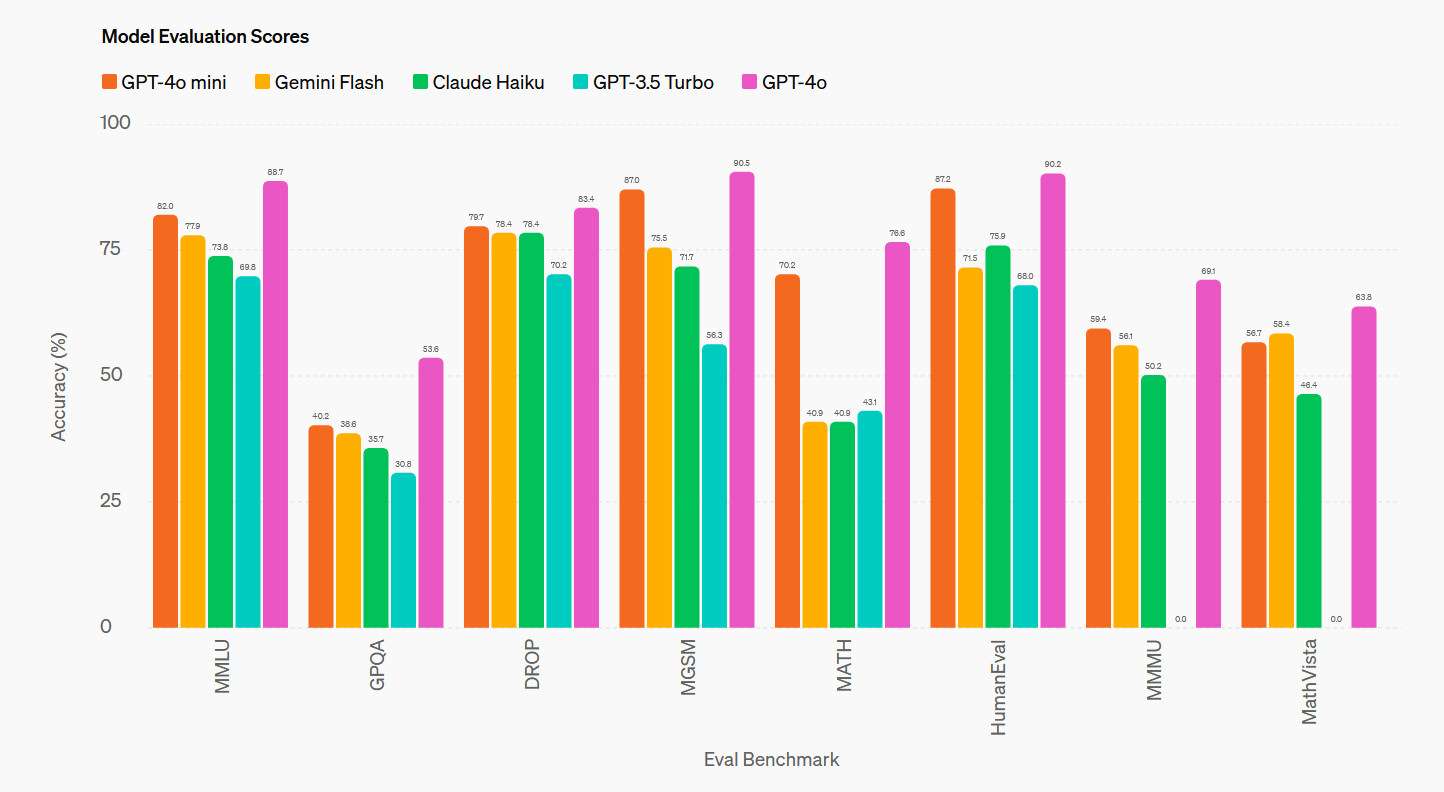On Thursday, OpenAI announced the launch of GPT-4o mini, a new, smaller version of its latest GPT-4o AI language model that will replace GPT-3.5 Turbo in ChatGPT, reports CNBC and Bloomberg. It will be available today for free users and those with ChatGPT Plus or Team subscriptions and will come to ChatGPT Enterprise next week.
GPT-4o mini will reportedly be multimodal like its big brother (which launched in May), with image inputs currently enabled in the API. OpenAI says that in the future, GPT-4o mini will be able to interpret images, text, and audio, and also will be able to generate images.
GPT-4o mini supports 128K tokens of input context and a knowledge cutoff of October 2023. It's also very inexpensive as an API product, costing 60 percent less than GPT-3.5 Turbo at 15 cents per million input tokens and 60 cents per million output tokens. Tokens are fragments of data that AI language models use to process information.
Notably, OpenAI says that GPT-4o mini will be the company’s first AI model to use a new technique called "instruction hierarchy" that will make an AI model prioritize some instructions over others, which may make it more difficult for people to use to perform prompt injection attacks or jailbreaks, or system prompt extractions that subvert built-in fine-tuning or directives given by a system prompt.
Once the model is in the public's hands (GPT-4o mini is currently not available in our instance of ChatGPT), we'll surely see people putting this new protection method to the test.
Performance
Predictably, OpenAI says that GPT-4o mini performs well on an array of benchmarks like MMLU (undergraduate level knowledge) and HumanEval (coding), but the problem is that those benchmarks don't actually mean much, and few measure anything useful when it comes to actually using the model in practice. That's because the feel of quality from the output of a model has more to do with style and structure at times than raw factual or mathematical capability. This kind of subjective "vibemarking" is one of the most frustrating things in the AI space right now.






For example, asking it something like "My program is crashing with this exception: <exception message>" will often cause it to provide general advice about troubleshooting generic crash issues and sometimes I'll get multiple pages of text. I often have to remind it that I gave it the exact crash message and only then does it go back and actually answer the original question.
I hope that GPT-4o mini doesn't exhibit the same behavior.